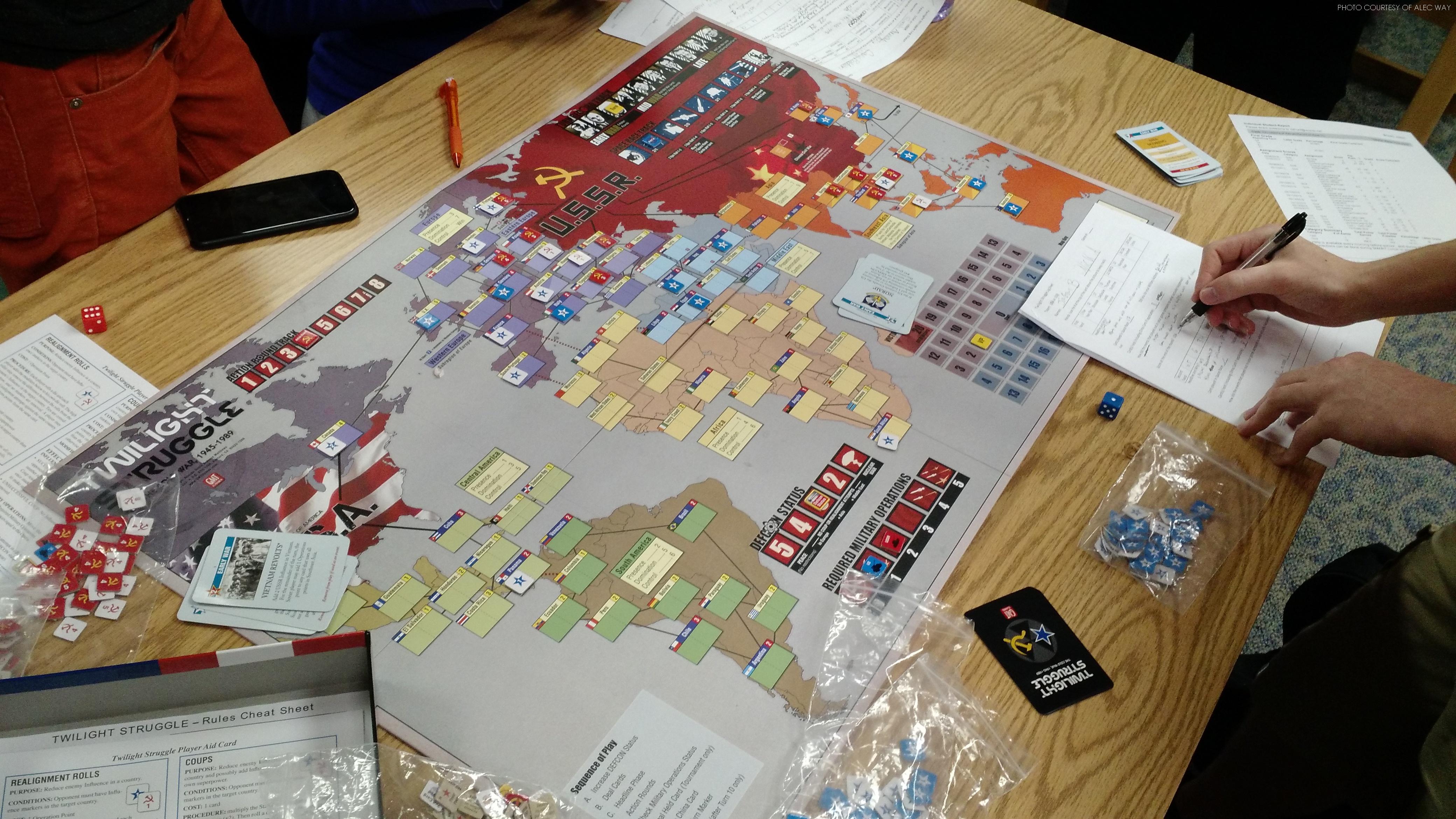
Most students relish the idea of watching a movie as the height of any class or particular day in high school. For Mr. Hunt’s (social studies teacher) Lessons of Vietnam & Recent International Relations class movies are hardly what to get excited about.
This is because Lessons of Vietnam utilizes a unique technique for putting students into the minds of diplomats — strategy board games. Historically this has been through Diplomacy, a critically acclaimed board game originally published in 1959, that has players play the role of pre World War I European super powers: England, France, Germany, Russia, Ottoman Empire, and Italy. Using skill, knowledge and strategy, but most of psychology and negotiation as their tools, players vie for domination of Europe.
Larry Harris, designer of the game Axis & Allies, said, “I am convinced that Allan Calhamer’s masterpiece [“Diplomacy”] should be part of every high school curriculum. Don’t tell the kids, but it teaches history, geography, the art of political negotiation, and something else — some healthy critical skepticism. By the time you get into high school, you have a pretty good idea that not everyone always tells the truth. But a good game of Diplomacy helps you to understand how skillful some people can be at fooling you!”
Sarah Arney, senior, said, “Playing Diplomacy really gives you an insight on intrigue and politics. No lessons can replace seeing how your classmates strategize and plot with one another.”
This year, however, Lessons of Vietnam students got to try out a new game; Twilight Struggle. Twilight Struggle is a strategy board game centered around the Cold War, years 1945-1989. Players play as either the United States or the Soviet Union and try to achieve domination, not through military might, as in Diplomacy, but the tactical placing of influence around the world.
A fundamental contrast between Twilight Struggle and Diplomacy is the use of cards. Cards take the name of historical events, political policies and characters/speeches and serve two primary functions: operations or events.
Operations: Each card has an ops value, ranging from 1-4. There are three operations: influence, realignment rolls, and coups
Playing a card for influence also a player to place influence equal to the cards ops value. The goal is to gain control of countries by having a certain amount of net influence (varied by country) over their opponent in the region. Realignment rolls are when players risk a dice roll to reduce opponent, and possibly raise their own influence in a country, however, the player may end up only losing influence in the process.
Finally, coups are military takeovers in countries and use a dice roll to supplement their ops points. Outcomes of coups are easier to control, but coups in battleground states lower Defcon level; if a player drops Defcon to Defcon 1 global-thermonuclear war is instigated and the opposing player is awarded 20 Victory Points and assured the win.
Events: Playing a card as an event allows the player to execute the command dictated in the card text. Certain cards are only playable by the US or USSR player. Example cards include: Arab-Israeli War, Blockade, Containment and are inspired by the Cold War.
Cards are also separated into Early, Mid, and Late War decks depending on progression of the game.
“I played the Soviet Union and was surprised by how closely our game mirrored history. We started in Europe, moved to Southeast Asia, and eventually to the Middle East,” said Arney.
Cary Baldwin, senior, said, “Because it’s a game, the events have objective value and that helps you to know and understand the significance of the actual events described.”
Scoring: In a way most befitting the Cold War, the scoring process is a turn-by-turn tug-of-war between the US and USSR as they both try to move the VP (victory point) chip towards their side of a spectrum ranging from -20 to +20. Points are awarded throughout the game via scoring cards and other mechanisms.
The game was also accompanied by a project requiring students to research and write about two events in particular that interested them and they were prior unaware off.
“I think strategy games have a lot of educational value, specifically because this is a recent international relations class. Simulations and games allow students to express a lot of skills, like strategizing and thinking steps ahead that you don’t really get the chance to in school,” said Baldwin. “I come from a background in gaming, but I think for many in the class [the use of strategy board games] was a unique experience and test.”
Twilight Struggle was a gift to Mr. Hunt from the PTA, alongside another game, Fire in the Lake, which centers around the competing factions in Vietnam, which he plans to try on this year’s Lessons of Vietnam class, too.